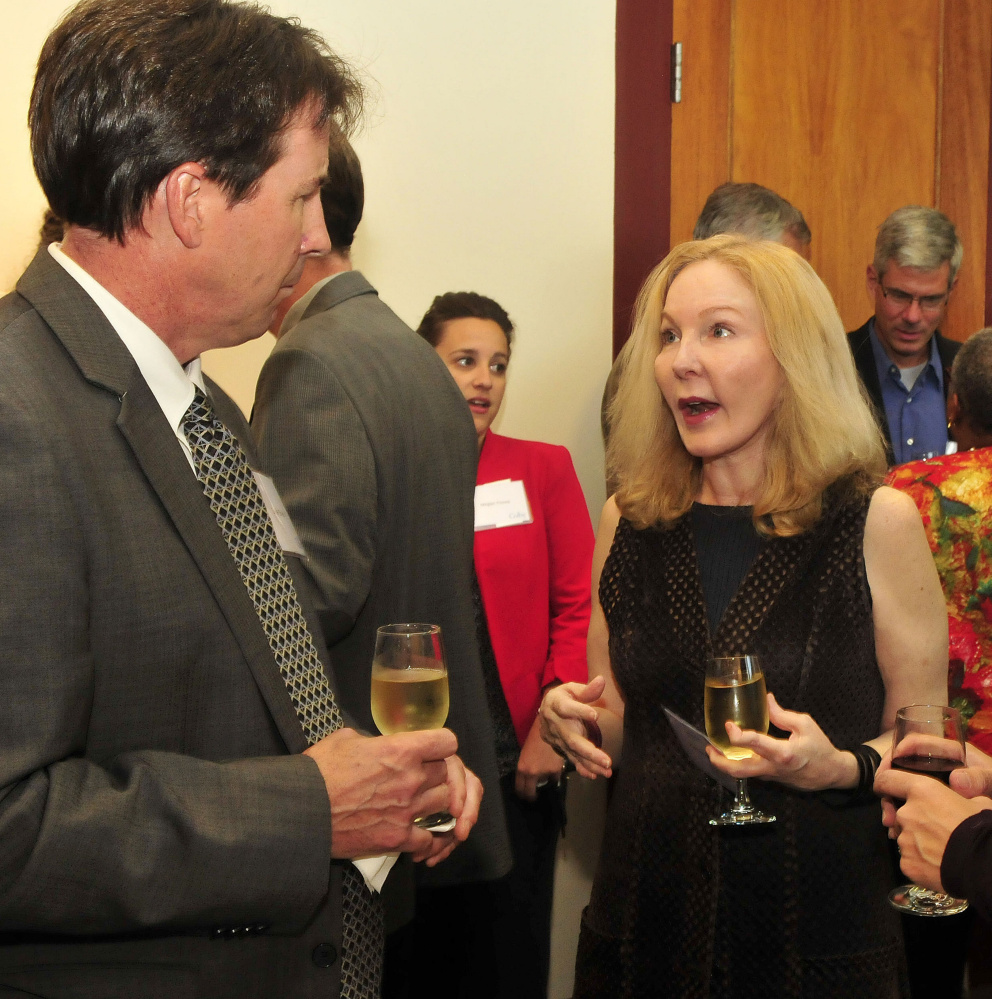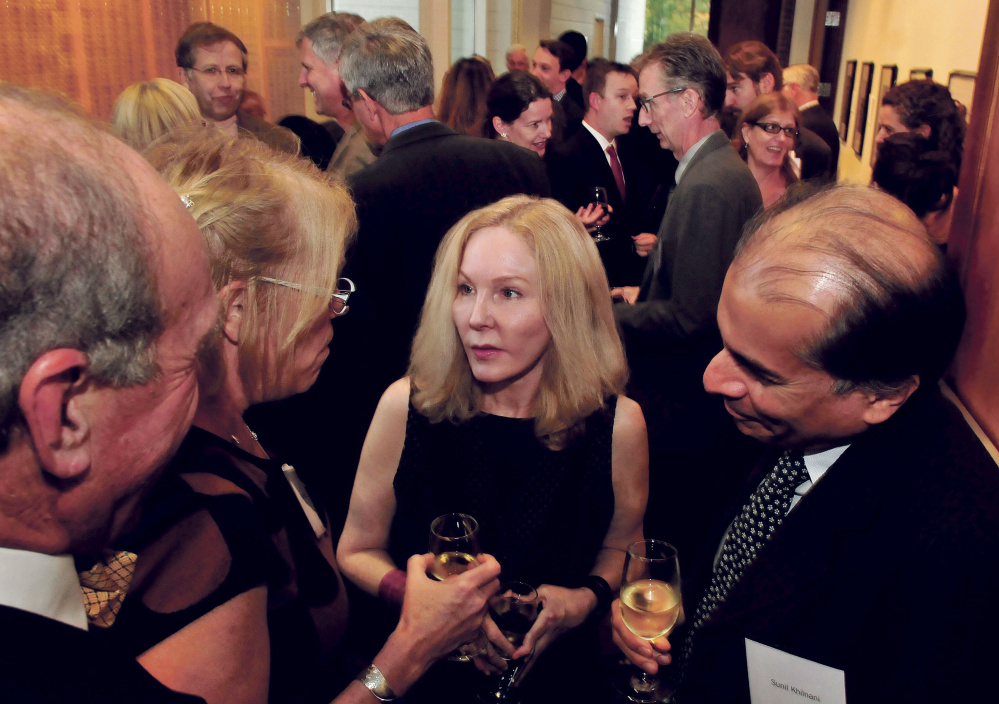WATERVILLE — Katherine Boo, a journalist who focuses on telling the stories of the poor and underprivileged in America and abroad, received the annual Elijah Parish Lovejoy Award for courageous journalism at a ceremony Monday night at Colby College.
In remarks to a packed crowd in the college chapel, Boo said that her work would be impossible without the courage of the people she reported on. The journalist showed photographs and video of people she reported on in an Indian slum to demonstrate her points about global inequality, corruption and indifference.
“We journalists do not corner the market on courage,” Boo said. Many of the subjects of her stories risked retaliation by talking to her, she added. The people she worked with were “co-investigators” into the injustice they faced, she said.
“It is by dint of other people’s bravery,” that journalists like herself work in societies adept at keeping injustices covered up, Boo said.
Boo started her career at the Washington City Paper in Washington, D.C., before moving on to The Washington Monthly magazine and then to the Washington Post.
In 2000, Boo won the Pulitzer Prize for Public Service for her reporting on abuse and neglect in group homes for intellectually disabled people in Washington, D.C.
After moving to The New Yorker in 2003, Boo won a National Magazine Award for Feature Writing and has also been the recipient of a MacArthur genius grant.
Her first book, “Behind the Beautiful Forevers,” chronicled the lives and experiences of families living in the Annawadi slum in Mumbai, India. The account won a National Book Award in 2012. For three and a half years, Boo integrated herself into the lives of several families that worked picking out recyclable waste in a landfill near the Mumbai airport. The desperate poverty and danger of their lives, and livelihoods, was underscored by the fact that they lived within sight of huge luxury hotels, Boo said.
The families she worked with formed part of a larger class of “trans-global poor” who were exposed to the whims of international money and power that from “worlds away” dictated their chances at getting ahead.
Introducing the award, Colby President David Greene said that Boo lived up to the ideals of Lovejoy, a Colby graduate from Albion and an anti-slavery newspaper editor who in 1837 was murdered defending his printing press in Alton, Illinois. The college has given the award to a journalist for his or her work on social justice every year since 1952.
“It is storytelling at its best and most illuminating,” Greene said of Boo’s work. Referencing her work on the Washington D.C. group homes, Greene said the reporting made him feel the pain of the people living in the homes and anger with those that ran them.
“She has made us feel and confront the shortcomings in societies and individuals,” Greene said.
Sitting on a pew in the balcony before the presentation, Emanuel Pariser, a teacher at the Maine Academy of Natural Sciences in Fairfield, said he has read a few articles by Boo, including one about a teen project in New Orleans. After reading the article, he got in touch with organizers of the program to get help setting up a similar one in Waterville.
“She’s writing about stuff that’s important,” Pariser said. “I’m excited to hear what she has to say.”
Boo said there were many times when she felt “creepy” with the journalistic work she did, and understood comparisons of journalists to “vultures” and “parasites.” But she said she could recall hundreds of moments when the people she worked with looked to her, a reporter, as the power they had to hold others responsible for the injustice they were forced to endure.
“In those moments, it is my duty to suspend disbelief, to start recording, to start investigating, to share their faith,” to the best of her ability, Boo said.
Peter McGuire — 861-9239
Send questions/comments to the editors.





Success. Please wait for the page to reload. If the page does not reload within 5 seconds, please refresh the page.
Enter your email and password to access comments.
Hi, to comment on stories you must . This profile is in addition to your subscription and website login.
Already have a commenting profile? .
Invalid username/password.
Please check your email to confirm and complete your registration.
Only subscribers are eligible to post comments. Please subscribe or login first for digital access. Here’s why.
Use the form below to reset your password. When you've submitted your account email, we will send an email with a reset code.